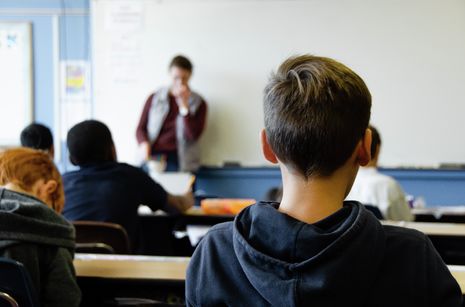Adolescents who feel poorer may have worse mental health and bully more
Cambridge University research links perceived financial inequality with worsened mental health and bullying

Perceived financial inequality increases the likelihood of poor mental health in young people, as well as increasing the likelihood of bullying others or being bullied, according to a new study.
Research conducted by psychologists at the University of Cambridge found that children who believe they come from poorer backgrounds than their friends may be more likely to suffer from lower self-esteem than those who feel financially equal. The team also discovered that kids who consider themselves poorer or richer than others in their social sphere were more likely to bully others.
While the link between economic disadvantage and worse mental health has long been established, this new study shows that just feeling poorer compared to your friends may have a negative impact, regardless of actual family income.
“You do not have to be rich or poor to feel richer or poorer than your friends, and we can see this affects the mental health of young adolescents,” said the lead author Blanca Piera Pi-Sunyer, a Cambridge Gates Scholar in the university’s Department of Psychology.
The research team analysed perceived financial differences within friendship groups among 12,995 UK children at age eleven, collected as part of the Millennium Cohort Study. The adolescents were asked to rate whether they thought of themselves as richer, poorer or the same as their friends, or whether they didn’t know. Self-esteem and issues relating to bullying were also measured, alongside data on the weekly family disposable income.
The majority of children considered themselves to be financially equal to their friends, but 4% and 8% thought of themselves as either poorer or richer, respectively, while 16% didn’t know.
Those who considered themselves less wealthy than their friends scored 6–8% lower for self-esteem and 11% lower in terms of well-being than others who didn’t perceive a difference.
The eleven-year-olds who believed themselves to be less wealthy were also 17% more likely to report being bullied than those who felt economically equal to their friends. This decreased at age fourteen, but those who felt poorer than their peers were still 8% more likely to be bullied.
The perception of being either richer or poorer than their friends was also related to a 3–5% higher likelihood of bullying others. “It may be that feeling different in any way at a time when belonging is important increases the risk of interpersonal difficulties such as bullying,” commented Pi-Sunyer.
In early adolescence, making judgements about ourselves in comparison to others is central to the development of our sense of self. “Our research suggests that wealth comparisons with those around us might contribute to a sense of social and personal self-worth when we are young,” added Pi-Sunyer. Feeling that you are not financially equal in comparison to your peers “might be problematic for our sense of belonging.”
In order to remove the perception of economic inequality, however, we must first tackle objective financial inequality, a problem not likely to be solved any time soon.
 News / Proposed changes to Cambridge exam resits remain stricter than most7 May 2024
News / Proposed changes to Cambridge exam resits remain stricter than most7 May 2024 News / Cambridge students set up encampment calling for Israel divestment6 May 2024
News / Cambridge students set up encampment calling for Israel divestment6 May 2024 Features / Cambridge punters: historians, entertainers or artistes? 7 May 2024
Features / Cambridge punters: historians, entertainers or artistes? 7 May 2024 Sport / The ‘netball girl’: myth or reality?7 May 2024
Sport / The ‘netball girl’: myth or reality?7 May 2024 Theatre / A nuanced and neurodivergent Carrie comes to the ADC6 May 2024
Theatre / A nuanced and neurodivergent Carrie comes to the ADC6 May 2024






